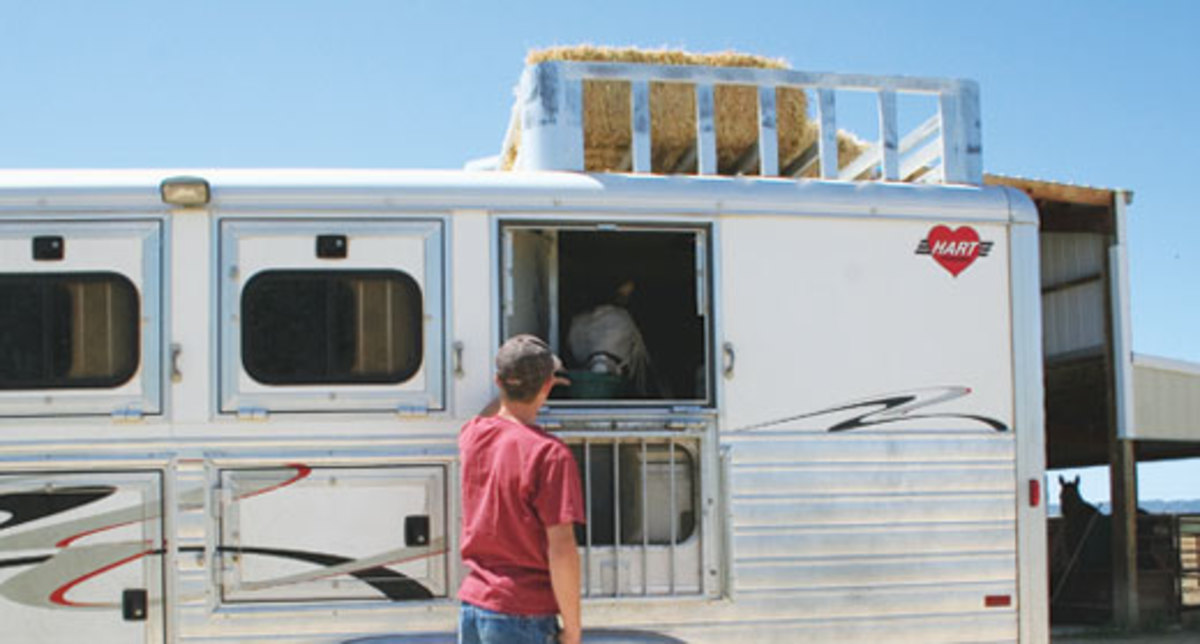
Traveling long distances with horses can cause health problems. Those problems can range from accidental trauma to dehydration with its sequelae. I will address some of the more common problems I’ve observed, and comment on prevention and treatment of those problems.
First of all, the horse you’re hauling has a lot to do with the probability of problems arising. Older, more experienced horses haul a lot better, and tend to have fewer problems on the road. Secondly, the trailer you’re hauling in is important in preventing problems. I sure think the modern slant-load trailers are much easier for horses to travel in than the old side-by-side two-horse trailers of the past. These newer generations of trailers also allow room to haul your own feed, which your horse is accustomed to, so is also a positive thing.
Gastrointestinal problems seem to be the most common trouble encountered with horses on the road. One of the most common forms of this problem is impaction-type colic. I believe this type of colic often results from a change in feed or routine and dehydration. When hauling horses in hot weather, I think one should make special efforts to allow them to drink regularly to prevent dehydration, because once dehydration impacts a horse he may quit drinking and eating, which creates a problem that can only be treated by intravenous fluids.
Another form of gastrointestinal problem that sometimes arises when hauling horses is gastric ulcers. This problem is often seen in younger, nervous horses, or horses being given significant doses of anti-inflammatory drugs such as phenylbutazone (“Bute”). They can just go off feed, show signs of moderate discomfort or, as owners are apt to say, look like they’re “just not right.”
To diagnose this problem, a veterinarian has to look at the stomach with a fiber-optic scope to visualize the ulcers. Treatment for this problem usually involves administration of a drug, omeprazole, which reduces the production of acid in the stomach. Other considerations in treatment and prevention of gastric ulcers involve regular feeding of good quality roughage (not a lot of grain), reducing stress and being careful on your dosage of drugs such as phenylbutazone (Bute) or flunixin (Banamine).
After all is said and done, I think hauling horses successfully is just based on common sense and paying attention to your horse. The more you can minimize stress and changes in routine, the fewer problems you’ll have.










